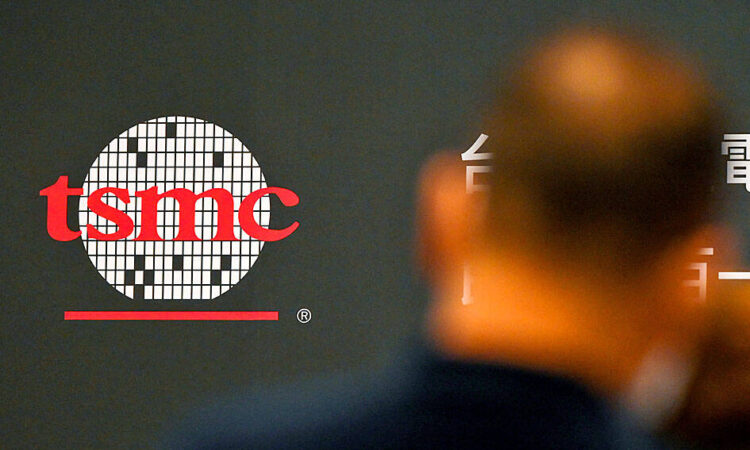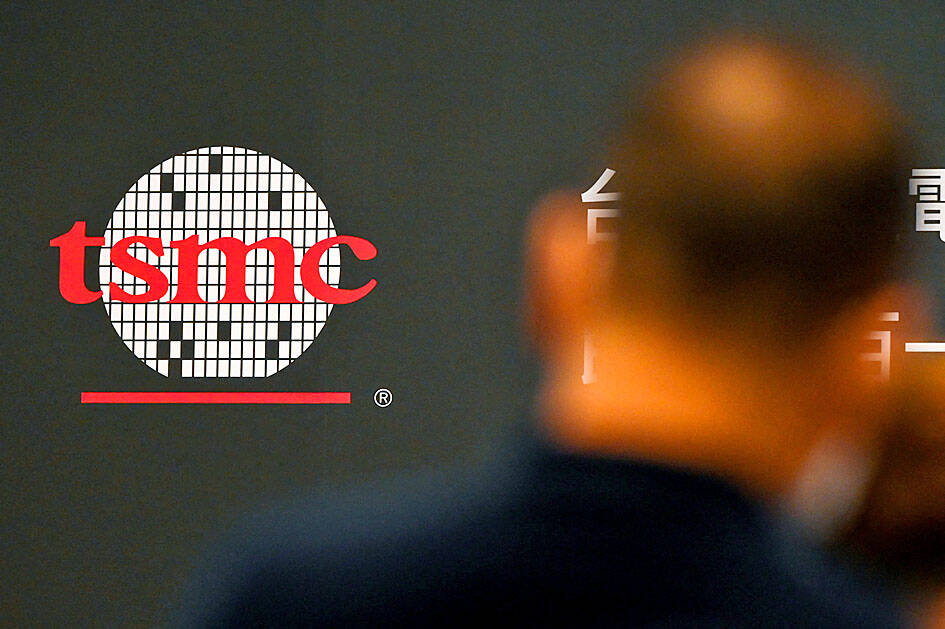
-
Staff writer, with CNA, Leuven, Belgium
Taiwan does not need to worry about its semiconductor industry moving abroad, and its position as a leader of the sector is set to continue, the head of Europe’s largest chip technology research center said.
“Although TSMC [Taiwan Semiconductor Manufacturing Co, 台積電] is investing in other locations, the core of TSMC will remain in Taiwan,” said Luc Van den hove, president and CEO of Belgium’s Interuniversity Microelectronics Centre, an international research and innovation hub focusing on nanoelectronics and digital technologies.
Asked in an interview with the Central News Agency whether Taiwan’s global market share is likely to decrease in the next five to 10 years because of the concern that the world is too dependent on it for semiconductors, Van den hove said that Taiwan would remain powerful in the sector, even if more manufacturing starts in other countries.

Photo: Sam Yeh, AFP
“I don’t think that position is going to change in the next five to 10 years at all,” he said.
In addition to lauding TSMC, the world’s largest contract chipmaker, as a significant enterprise, Van den hove said that many semiconductor companies in Taiwan would continue to help the country consolidate its position as crucial to the global chip industry.
He added that Taiwan also has an advantage with a critical mass of semiconductor foundries.
“I think TSMC has grown to such a level that it has become very important to the global economy,” he said, adding that by having a limited manufacturing capability outside Taiwan, the Hsinchu-headquartered company is helping to remove risk from its semiconductor supply chain.
“I believe that the success of Taiwan is related to the success of TSMC, and if TSMC makes the decision to have a small amount of manufacturing distributed across the world, I believe that will also benefit Taiwan,” he said.
Many experts have described Taiwan’s strength in microchips, which are indispensable in the production of many electronics and other technologies, as its “silicon shield,” which could help protect it against Chinese aggression.
Van den hove said that he would like to see TSMC invest in and set up some of its manufacturing in Europe.
He also said he hopes that any potential investment by TSMC in the European chip sector would allow the two sides to further bolster their research and development (R&D) partnerships, particularly as Taiwan leads the world in manufacturing, while Europe excels at R&D and innovation.
Van den hove also highlighted the importance of international cooperation in the sector, as the EU expects to pass the European Chips Act in the second half of this year, as it seeks to strengthen the European semiconductor industry.
As the US, the EU, Japan and other countries try to establish or expand their chip supply chains to reduce dependence on foreign manufacturers, efficiencies brought about by international cooperation are likely to weaken.
Van den hove said it was unrealistic for every region to have full control over their supply chain, because “the industry has, to a large extent, become successful thanks to international collaboration, international partnerships,” he said.
If every region tried to do everything on its own, this would set back the industry and slow innovation, as self-sufficiency would lead to mediocracy, he said.
Combining “the best of the best across the world; that is the best way to accelerate innovation,” he added.
Comments will be moderated. Keep comments relevant to the article. Remarks containing abusive and obscene language, personal attacks of any kind or promotion will be removed and the user banned. Final decision will be at the discretion of the Taipei Times.






